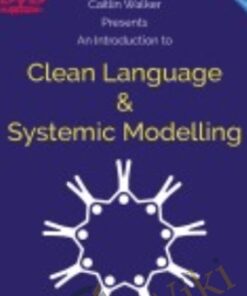-
×
 Daniel Sullivan - Dirty Boxing (Filipino Panantukan)
1 × $32.00
Daniel Sullivan - Dirty Boxing (Filipino Panantukan)
1 × $32.00 -
×
 All 14 Basic - Tutorials In 1 Seminar - Germanische Heilkunde
1 × $67.00
All 14 Basic - Tutorials In 1 Seminar - Germanische Heilkunde
1 × $67.00 -
×
 Advanced Killer Chicken Wings - Erik Paulson
1 × $34.90
Advanced Killer Chicken Wings - Erik Paulson
1 × $34.90 -
×
 “Email Response Warrior + Email Inbox Warrior” – Jason Henderson
2 × $78.00
“Email Response Warrior + Email Inbox Warrior” – Jason Henderson
2 × $78.00 -
×
 Todd Herman - 90 Day Year
1 × $128.00
Todd Herman - 90 Day Year
1 × $128.00 -
×
 10 Activities to Enhance Social-Emotional Literacy in the Classroom: Transform Student Behavior from Chaos to Calm - Lynne Kenney
1 × $19.00
10 Activities to Enhance Social-Emotional Literacy in the Classroom: Transform Student Behavior from Chaos to Calm - Lynne Kenney
1 × $19.00 -
×
 $200k Book Blueprint Training – Richelle Shaw
1 × $96.00
$200k Book Blueprint Training – Richelle Shaw
1 × $96.00 -
×
 10 Best-Ever Anxiety Treatment Techniques - Margaret Wehrenberg
1 × $164.00
10 Best-Ever Anxiety Treatment Techniques - Margaret Wehrenberg
1 × $164.00 -
×
 12 Dimensions of Mastery (Lifebook Challenge)
1 × $92.00
12 Dimensions of Mastery (Lifebook Challenge)
1 × $92.00 -
×
 Medical Marketing Mastery 100k Local Marketing Business - Jeff Smith
1 × $72.00
Medical Marketing Mastery 100k Local Marketing Business - Jeff Smith
1 × $72.00 -
×
 Disordered Eating Behaviors: Identify and Treat the Underlying Trauma - Lori Kucharski
1 × $85.00
Disordered Eating Behaviors: Identify and Treat the Underlying Trauma - Lori Kucharski
1 × $85.00 -
×
 12 Minute Stage Crazy - Body of a Rock Star
1 × $22.00
12 Minute Stage Crazy - Body of a Rock Star
1 × $22.00 -
×
 Cristian Gudnason - Ejaculation Master
1 × $14.00
Cristian Gudnason - Ejaculation Master
1 × $14.00 -
×
 14-Day Options Trading Bootcamp (Jule 2014) – Sang Lucci
1 × $50.00
14-Day Options Trading Bootcamp (Jule 2014) – Sang Lucci
1 × $50.00 -
×
 Train Your Mind for Athletic Success - Mental Preparation to Achieve Your Sports Goals - Jim Taylor
1 × $18.00
Train Your Mind for Athletic Success - Mental Preparation to Achieve Your Sports Goals - Jim Taylor
1 × $18.00 -
×
 All Things Cardiac: Evidence-Based Approaches to Manage Any Situation - Cyndi Zarbano
1 × $85.00
All Things Cardiac: Evidence-Based Approaches to Manage Any Situation - Cyndi Zarbano
1 × $85.00 -
×
 An Introduction to Clean Language and Systemic Modelling - Caitlin Walker
1 × $23.00
An Introduction to Clean Language and Systemic Modelling - Caitlin Walker
1 × $23.00 -
×
 Adam Horwitz - How To Build A Business & Make Money On Instagram
1 × $60.00
Adam Horwitz - How To Build A Business & Make Money On Instagram
1 × $60.00 -
×
 The Linkedin Executive Advantage Live Mentorship Program
1 × $191.00
The Linkedin Executive Advantage Live Mentorship Program
1 × $191.00 -
×
 100 Brain-Changing Mindfulness Techniques to Integrate Into Your Clinical Practice - Debra Burdick
1 × $84.00
100 Brain-Changing Mindfulness Techniques to Integrate Into Your Clinical Practice - Debra Burdick
1 × $84.00
You may be interested in…
-
Add
 $0 to $100,000 on Amazon (Premium Live Training) – Matt Clark and Jason Katzenback
$0 to $100,000 on Amazon (Premium Live Training) – Matt Clark and Jason Katzenback
$1,997.00Original price was: $1,997.00.$193.00Current price is: $193.00. -
Add
 [BIG Collection Real Estate] Real Estate Web Academy – Great Real Estate Giveaway
[BIG Collection Real Estate] Real Estate Web Academy – Great Real Estate Giveaway
$999.00Original price was: $999.00.$88.00Current price is: $88.00. -
Add
 "Fix My Job" binaural mantra meditation for attracting work you love - Michael Davis Golzmane
"Fix My Job" binaural mantra meditation for attracting work you love - Michael Davis Golzmane
$20.00Original price was: $20.00.$17.00Current price is: $17.00. -
Add
 100 Ways to Stay Motivated
100 Ways to Stay Motivated
$1,997.00Original price was: $1,997.00.$202.00Current price is: $202.00. -
Add
 10 Steps to Greater Confidence and Self-Esteem - Alexis Meads
10 Steps to Greater Confidence and Self-Esteem - Alexis Meads
$98.00Original price was: $98.00.$42.00Current price is: $42.00.